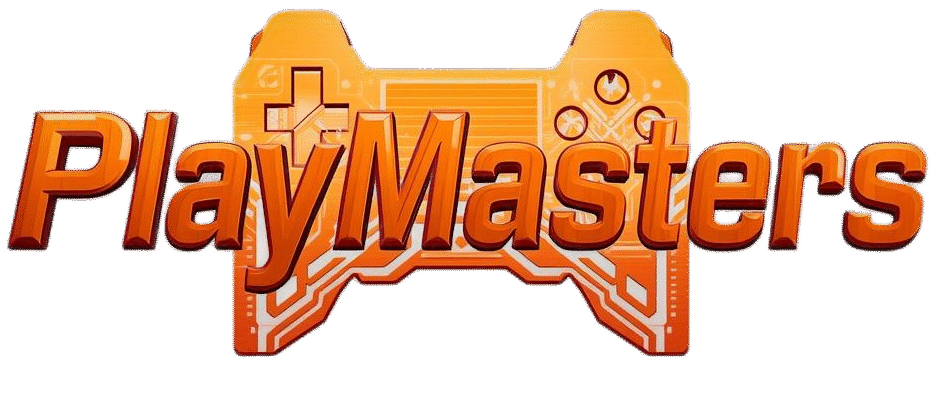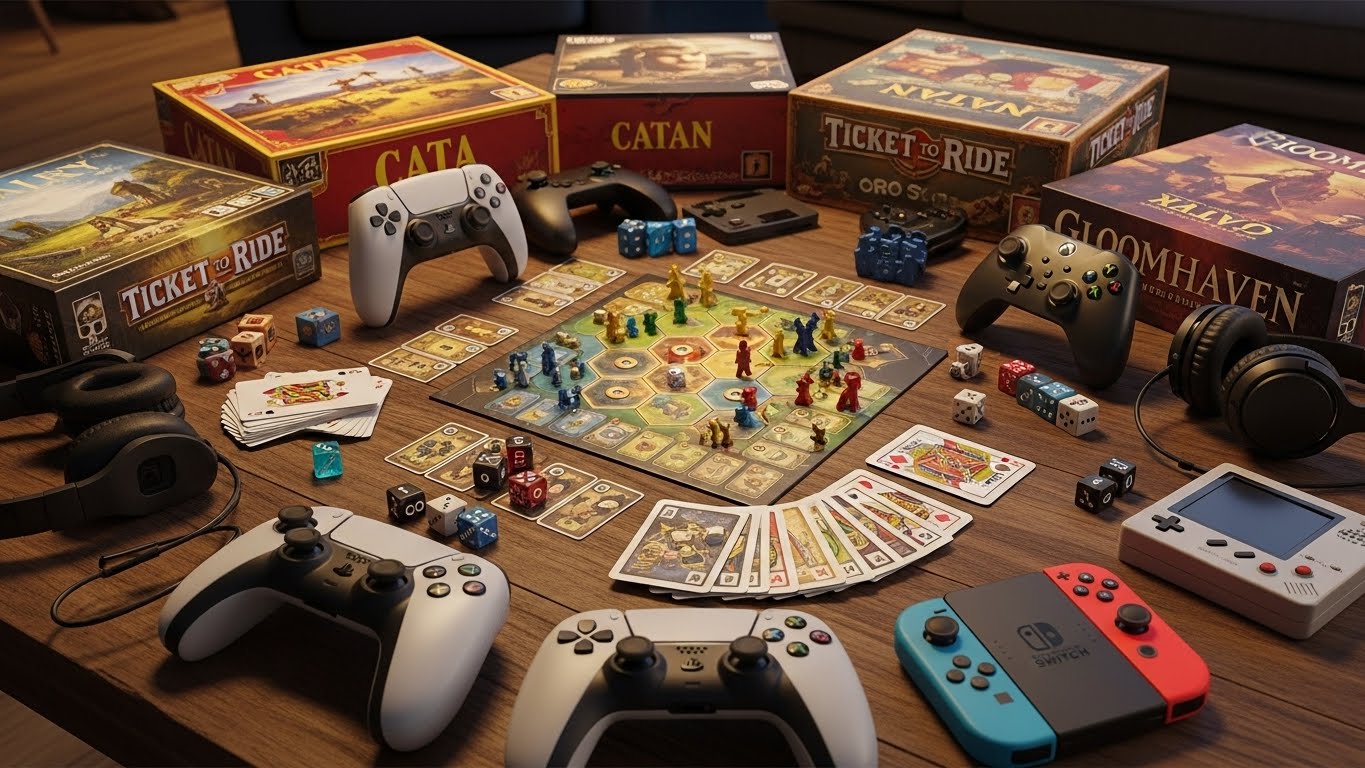Introduction: The Endless World of Games
Games have been a part of human culture for thousands of years, from ancient board games carved into stone to today’s high-tech digital experiences. But games are much more than just a way to pass the time. They are powerful tools that influence creativity, social interaction, learning, and even emotional well-being. Across every culture and generation, games have the ability to engage, challenge, and inspire people in profound ways.
In this blog post, we will explore the diverse world of games — including traditional, digital, and emerging forms — and examine how they impact individuals and society at large.
The Origins of Games: From Ancient Pastimes to Modern Classics
Games have existed since humanity’s earliest days, often serving purposes beyond entertainment. Ancient civilizations played games like Senet in Egypt and Go in China, blending strategy, spirituality, and social interaction.
These early games often reflected societal structures or philosophical concepts. Over centuries, games evolved into recognizable forms such as chess, checkers, and card games, becoming staples of cultural tradition and family gatherings.
Traditional games still thrive today, offering tactile and face-to-face experiences that digital alternatives cannot fully replace. The simple joy of rolling dice, moving pieces, or bluffing opponents remains timeless.
The Explosion of Video Games: Digital Worlds and Endless Possibilities
The 20th century introduced video games, forever changing how people play. From the pixelated simplicity of early arcade games to today’s complex virtual worlds, video games offer immersive experiences that stimulate both mind and senses.
Video games come in countless genres: action, adventure, simulation, puzzle, role-playing, strategy, and more. This diversity allows players of all tastes and skill levels to find games that resonate with them.
Games can transport players to fantastical realms, historical periods, or realistic simulations. They combine storytelling, artistry, and interactive challenges, creating unique narratives shaped by player choices.
Games as Social Connectors
Beyond solo play, games are powerful social tools. Board games bring friends and families together, creating shared moments of laughter and competition. Multiplayer video games allow people worldwide to cooperate, compete, and communicate in real time.
Online gaming communities foster friendships that transcend geography, language, and culture. These virtual spaces can create a sense of belonging and teamwork, often forming lifelong bonds.
Social games also teach essential interpersonal skills like cooperation, negotiation, and empathy. Playing with others requires patience, strategy, and emotional intelligence — qualities valuable far beyond the game itself.
The Educational Potential of Games
Games offer incredible educational opportunities. Serious games designed specifically for learning help develop skills in areas such as math, language, history, and science. But even entertainment-focused games can teach critical thinking, problem-solving, and resource management.
Games encourage active learning by making challenges engaging and rewarding. Players experiment, fail, and try again in a low-risk environment, building perseverance and creativity.
Educators increasingly use games to supplement traditional teaching methods. This approach helps motivate students and makes complex concepts more accessible.
Games and Cognitive Development
Playing games has positive effects on brain function. Strategic and puzzle games improve memory, attention, and spatial reasoning. Fast-paced games enhance reflexes, hand-eye coordination, and decision-making speed.
Role-playing games nurture creativity, imagination, and storytelling skills. Simulation games help understand systems thinking and cause-and-effect relationships.
While moderation is key, the cognitive benefits of gaming suggest that play can be a valuable part of mental fitness and development throughout life.
Games and Emotional Well-being
Games provide a safe space to explore emotions and cope with stress. They offer escapism, relaxation, and enjoyment, which contribute to overall happiness.
Some games promote mindfulness and self-awareness, helping players manage anxiety and depression. Narrative-driven games allow players to empathize with diverse characters and experiences, fostering emotional growth.
Additionally, overcoming in-game challenges boosts confidence and self-efficacy. The sense of accomplishment in mastering difficult tasks is a powerful motivator and mood enhancer.
The Role of Technology in Shaping the Future of Games
Technological innovation continues to transform gaming. Virtual reality offers fully immersive environments where players feel physically present in the game world. Augmented reality blends digital content with the real world, creating interactive experiences that extend beyond screens.
Artificial intelligence improves game design by creating smarter opponents, dynamic storylines, and personalized challenges. Cloud gaming makes high-quality games accessible without expensive hardware.
As technology evolves, games will continue to break boundaries and provide novel ways for players to engage and connect.
Inclusivity and Accessibility in Gaming
The gaming community is becoming more diverse and inclusive. Developers are making conscious efforts to create games that reflect a wide range of identities and experiences.
Accessibility features like customizable controls, subtitles, and difficulty adjustments help players with disabilities enjoy games fully. Inclusive design benefits everyone by making games easier and more enjoyable to play.
Representation matters. Games that tell diverse stories and include varied characters enrich the medium and invite more players to feel seen and valued.
The Business of Games: An Industry on Fire
The global games industry has grown into a multi-billion-dollar enterprise. From indie developers to major studios, companies are constantly innovating to capture audiences.
Monetization models have evolved beyond one-time purchases to include subscriptions, downloadable content, and microtransactions. While these models allow ongoing support and expansion, they also raise ethical questions about consumer protection and fairness.
The industry drives technological development, job creation, and cultural trends. Gaming conventions and esports events attract millions, showcasing the economic and social importance of games.
Balancing Gaming and Life
While games offer many benefits, balance is crucial. Excessive gaming can interfere with work, education, and relationships. Setting boundaries and maintaining healthy habits ensures play remains positive.
Parents and guardians play a key role in guiding young players, encouraging age-appropriate content, and fostering healthy gaming habits.
Ultimately, games should complement life, not dominate it. When enjoyed mindfully, games enrich our leisure time and personal growth.
Conclusion: Celebrating the Power and Potential of Games
Games are far more than entertainment. They are cultural artifacts, educational tools, social platforms, and emotional outlets. From ancient board games to cutting-edge digital experiences, games reflect and shape human creativity and connection.
As technology advances and society evolves, the world of games will continue to expand, innovate, and inspire. Whether you play for fun, challenge, learning, or community, games offer something meaningful for everyone.
Embracing games as a positive force in life allows us to experience joy, growth, and belonging — all through the simple, profound act of play.




